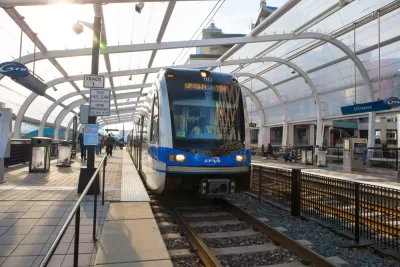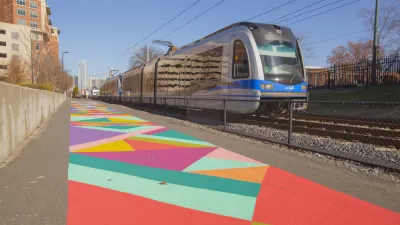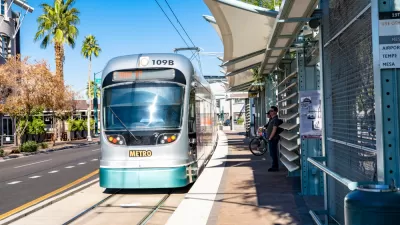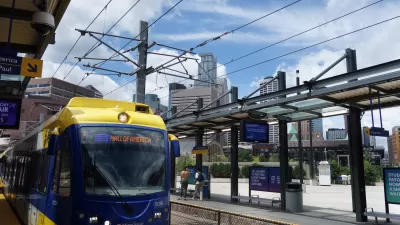An extension of the Lynx Blue Line is schedule to open to the public on March 31, 2018. Controversy regarding sales taxes have traditionally followed transit projects in the region.

[Updated 3/13/2017] Adam Rhew writes of the decade-long history of debate over Charlotte's light rail ambitions, with the opening date for an extension of the Blue Line looming at this time next year.
The Blue Line extension will connect uptown to UNC Charlotte, after an eight-month delay due to "construction coordination challenges, required testing, and safety reviews."
According to Rhew, conservative advocates in the region have vociferously opposed the Lynx Blue Line since it's earliest days (construction began on the system in 2005, and an unsuccessful referendum to repeal Mecklenburg County’s half-cent transit tax appeared on the ballot in November 2007). Despite the decade of opposition and the extension's delays and cost overruns, report CATS CEO John Lewis has "floated an ambitious, $6 billion proposal to build three additional light rail lines—to Matthews, Iredell County, and the airport—at once."
"Doing so would almost certainly require a supplemental transit tax, which will be a tough sell with north Mecklenburg voters, who have been paying the extra half-cent since 1998 with nothing to show for it, and who are increasingly frustrated with transit-related decisions from Raleigh and Charlotte," adds Rhew.
Meanwhile, says Rhew, the existing Blue Line is well used: "the light rail cars are standing-room-only during rush hour and uncomfortably full on Panthers game days." Despite that success, Charlotte looks like a train hurling headlong into another transit funding controversy.
[The article was updated with the correct date for the opening of the Blue Line Extension.]
FULL STORY: Our Love-Hate Light Rail Debate

Maui's Vacation Rental Debate Turns Ugly
Verbal attacks, misinformation campaigns and fistfights plague a high-stakes debate to convert thousands of vacation rentals into long-term housing.

Planetizen Federal Action Tracker
A weekly monitor of how Trump’s orders and actions are impacting planners and planning in America.

San Francisco Suspends Traffic Calming Amidst Record Deaths
Citing “a challenging fiscal landscape,” the city will cease the program on the heels of 42 traffic deaths, including 24 pedestrians.

Defunct Pittsburgh Power Plant to Become Residential Tower
A decommissioned steam heat plant will be redeveloped into almost 100 affordable housing units.

Trump Prompts Restructuring of Transportation Research Board in “Unprecedented Overreach”
The TRB has eliminated more than half of its committees including those focused on climate, equity, and cities.

Amtrak Rolls Out New Orleans to Alabama “Mardi Gras” Train
The new service will operate morning and evening departures between Mobile and New Orleans.
Urban Design for Planners 1: Software Tools
This six-course series explores essential urban design concepts using open source software and equips planners with the tools they need to participate fully in the urban design process.
Planning for Universal Design
Learn the tools for implementing Universal Design in planning regulations.
Heyer Gruel & Associates PA
JM Goldson LLC
Custer County Colorado
City of Camden Redevelopment Agency
City of Astoria
Transportation Research & Education Center (TREC) at Portland State University
Jefferson Parish Government
Camden Redevelopment Agency
City of Claremont





























